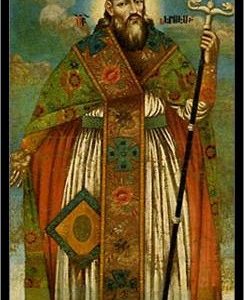The lazy days of summer should be spent in leisurely reading. But I would recommend books that deal with truth. A friend confessed to me that she reads trash, and defined the term as material read but never remembered. The ten books I recommend provide glimpses of enduring truth. They feed the mind and soul and animate the spirit. They offer ideas that will please, enrapture, and edify.
1. Orthodoxy by Gilbert Keith Chesterton:
Chesterton is a paragon of common sense. But that alone hardly does him justice. His imagination and literary skills are unsurpassed. He is the unparalleled master of combining the familiar with the unfamiliar, something secure with something strange, the ordinary with the mysterious, “which,” he tells us, “Christendom has rightly named romance”. Chesterton is the most quotable writer for Catholics in the modern world. His prophetic relevance is truly astonishing.
2. The Flight from Woman by Karl Stern:
Karl Stern has been called the last of the Renaissance men. He is a distinguished psychiatrist, an accomplished pianist, a teacher, a brilliant author, a novelist, and a philosopher. He is able to bring his vast knowledge into a laser beam focus is his study of the sexes and why there is this curious phenomenon of a flight from woman. This is one of the best works ever written dealing with the nature and the relationship between the sexes.
3. Leisure the Basis of Culture by Josef Pieper:
“By philosophizing,” the author states, “We step beyond the world of work”. In his Introduction to the book, T. S. Eliot believes that Pieper’s “influence should be in the direction of restoring philosophy to a place of importance for every educated person who thinks, instead of confining it to esoteric activities”. Pieper, thoroughly versed in the thought of St. Thomas Aquinas, is easily one of the outstanding thinkers of our time.
4. The Art of Living by Dietrich and Alice von Hildebrand:
The von Hildebrands are great lovers of art and imbue their treatise on ethics with the unity and beauty that is characteristic of great art. They hold that reverence is the mother of all virtues. Accordingly, the reverent man remains silent in order for reality to speak to him. Thus, he is being-oriented, having discovered values that transcend his arbitrary pleasures, and give him a grandeur commensurate with his inalienable dignity.
5. Six Great Ideas by Mortimer Adler:
Dr. Adler is America’s best known philosopher. He is also her most encyclopedic, having worked in the developing of the Great Books at the University of Chicago. The six great ideas are Truth, Beauty and Goodness—ideas we judge by; and Liberty, Equality, and Justice—ideas we act on. Adler examines each of these ideas in a most enlightening manner. The book is most helpful in providing a more reliable understanding of these great ideas than what we often find in our unphilosophical world.
6. Mystery and Manners by Flannery O’Connor:
Flannery O’Connor is best known for her novels, one of which has been made into a movie. Not everyone, however, shares her penchant for the grotesque. Nonetheless, all her readers will have a treat with this carefully selected collection of her essays where they will meet Miss Flannery as a warm and engaging human being. As a writer, according to The New York Times, she “ranks with Mark Twain and Scott Fitzgerald among our finest prose stylists”.
7. Darwin’s Black Box by Michael Behe:
This is a superlative treatment by a biochemist of the molecular complexity of the human being and the radical weaknesses of Darwin’s theory of evolution. Darwin conjectured that in the evolutionary process, the living being changes one step of the time. Behe demolishes this contention by alluding to the notion “irreducible complexity”. This book is well illustrated and shows how the modern science of molecular biology is eons ahead of what science was in the nineteenth century.
8. Love Is Stronger than Death by Peter Kreeft:
Professor Kreeft is a prolific writer. He has the knack of making important ideas that culture misunderstands, readily understandable to a wide audience of readers. Among his many books, this one may be his best. He takes us on a journey through the innumerable little deaths we experience in our daily lives and shows how love can always meet the test. His recounting of the near death of his daughter is truly an inspiration. Kreeft dazzles the reader not only with his philosophical wisdom, but also with his engaging literary style.
9. The Rights of Man and Natural Law by Jacques Maritain:
Maritain is a scholar in the best sense of the word, and much of his writing is a challenge to the average reader. This modest tome of 119 pages should be well within the reach of readers who are trying to get a better grasp on the Natural Law and the basis for human rights. T. S. Eliot has called Maritain “the most powerful force in contemporary culture,” while Etienne Gilson has stated that “he is one of the deepest thinkers of all times”. No book list of philosophers would be complete without this great pilgrim of the absolute.
10. Love & Responsibility by Karol Wojtyla (Pope John Paul II):
The author’s pastoral experience is the source of this profound, yet accessible work on human sexuality, marriage, and the family. It may be without peer. He understands the relevance of the sciences—biology, psychology, sociology—in matter of sexuality, but he also knows that a full understanding on the subject can be derived only from a study of the human person as a whole. Here, Wojtyla draws from his philosophical grasp of the nature of the human being as a person. This is a timeless book for all times.
These ten Catholic thinkers, of which six are converts, have written other books of interest that could replace any of the above that may be difficult to acquire. A second set of ten would include Gabriel Marcel, Etienne Gilson, Phyllis McGinley, Dorothy Sayers. Gerard Verschuuren, Anthony Esolen. George Weigel, C. S. Lewis, Fulton Sheen, and John Henry Newman.
“There are worse crimes than burning books,” remarked Ray Bradbury, author of Fahrenheit 451. “One of them is not reading them.”
✠












